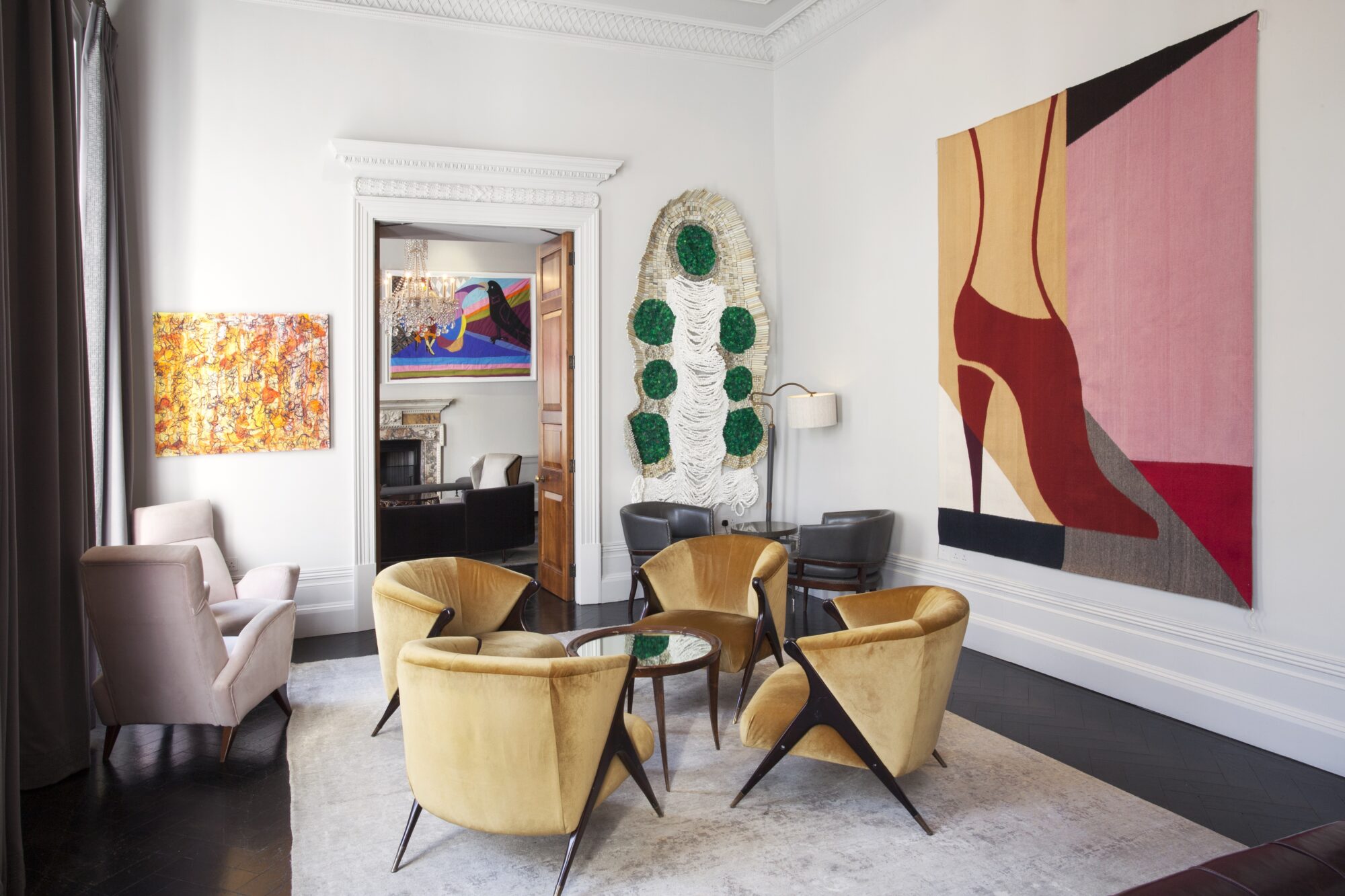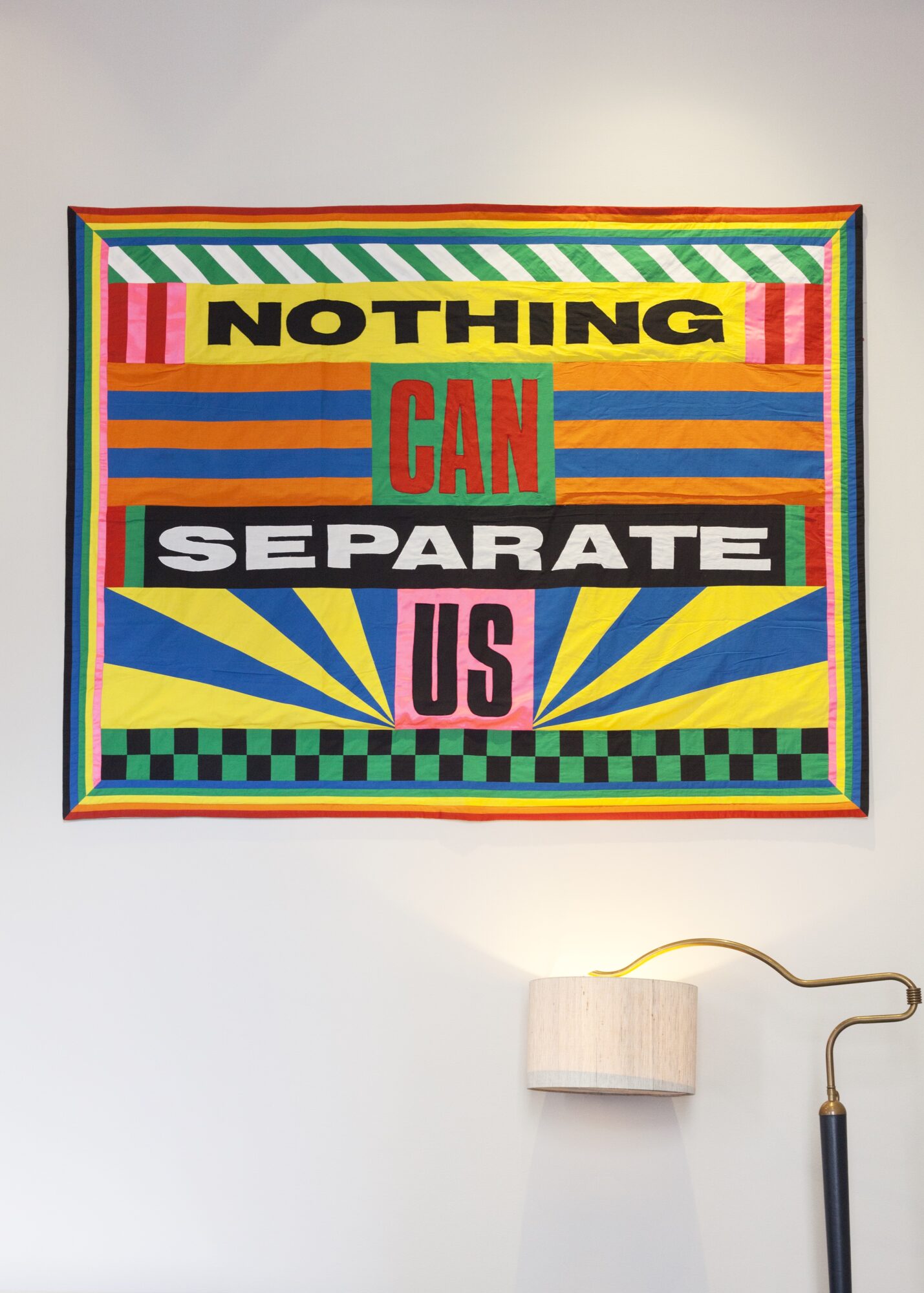Disrupting the Canon
— The Arts Club, London
Installation view: Disrupting the Canon, The Arts Club, London. Image: Kate Elliott.

Tap to view slideshow
Disrupting the Canon showcased artworks by Ghada Amer, Jonathan Baldock, Sanford Biggers, Alison Britton, Alexandre da Cunha, Holly Hendry, Lakwena Maciver, Dindga McCannon, Ulrike Müller, Yinka Shonibare and Moffat Takadiwa. Disrupting the Canon brought together ground-breaking contemporary works that defy prevalent ideas of ‘high art’, reclaiming visual languages that have typically been associated with craft, domestic and vernacular work. Whilst each piece is imbued with its own specific meaning all pointedly subvert tradition and respond to both the times we live in and to the enduring identity politics that brought us to this point.
Ghada Amer’s (b. 1963, Cairo, Egypt) multi-media paintings utilise embroidery in an exploration of the female form and hidden, but explicit and challenging, taboos. Both Sanford Biggers (b. 1970, Los Angeles, CA) and Holly Hendry (b. 1990, London, UK), also included in the exhibition, push the boundaries of traditional artistic mediums: Biggers works with antique quilts and paints directly upon them, whilst Hendry explores in her sculptures and installations what lies beneath the surface, from hidden underground spaces to the interior workings of the body.
Other artists that work with textiles in this exhibition include Yinka Shonibare CBE RA (b. 1962, London, UK), Dindga McCannon (b. 1947 Harlem, NY) and Moffat Takadiwa (b. 1983, Karol, Zimbabwe).
Jonathan Baldock (b. 1980, Kent, UK) and Alison Britton (b. 1948, Harrow, UK) both work with ceramics: Baldock uses ceramic to address the trauma, stress, sensuality, mortality and spirituality around our relationship to the body. Britton is a leading British ceramicist whose gestural, sculptural pots have garnered an international reputation; negotiating the difficult ground between art and craft, she has become a spokeswoman for her generation and has defined a new context for the ceramic vessel that defies those that came before in English craft.
Ulrike Müller (b. 1971, Brixlegg, Austria) works with various materials and techniques – including vitreous enamel, printmaking and weaving – to deploy a graphic and rigorous formalism that is charged with feminist and queer possibilities. Working with more traditional mediums, Lakwena Maciver (b. 1986, London, UK) uses acid-bright colour and bold typographic text to make her textiles act as a means of decolonisation, subtly subverting prevailing mythologies. Lastly, Alexandre da Cunha (b.1969, Rio de Janeiro, Brazil). Da Cunha studies how the ready-made is affected by narrative, history, and the results of labour.

